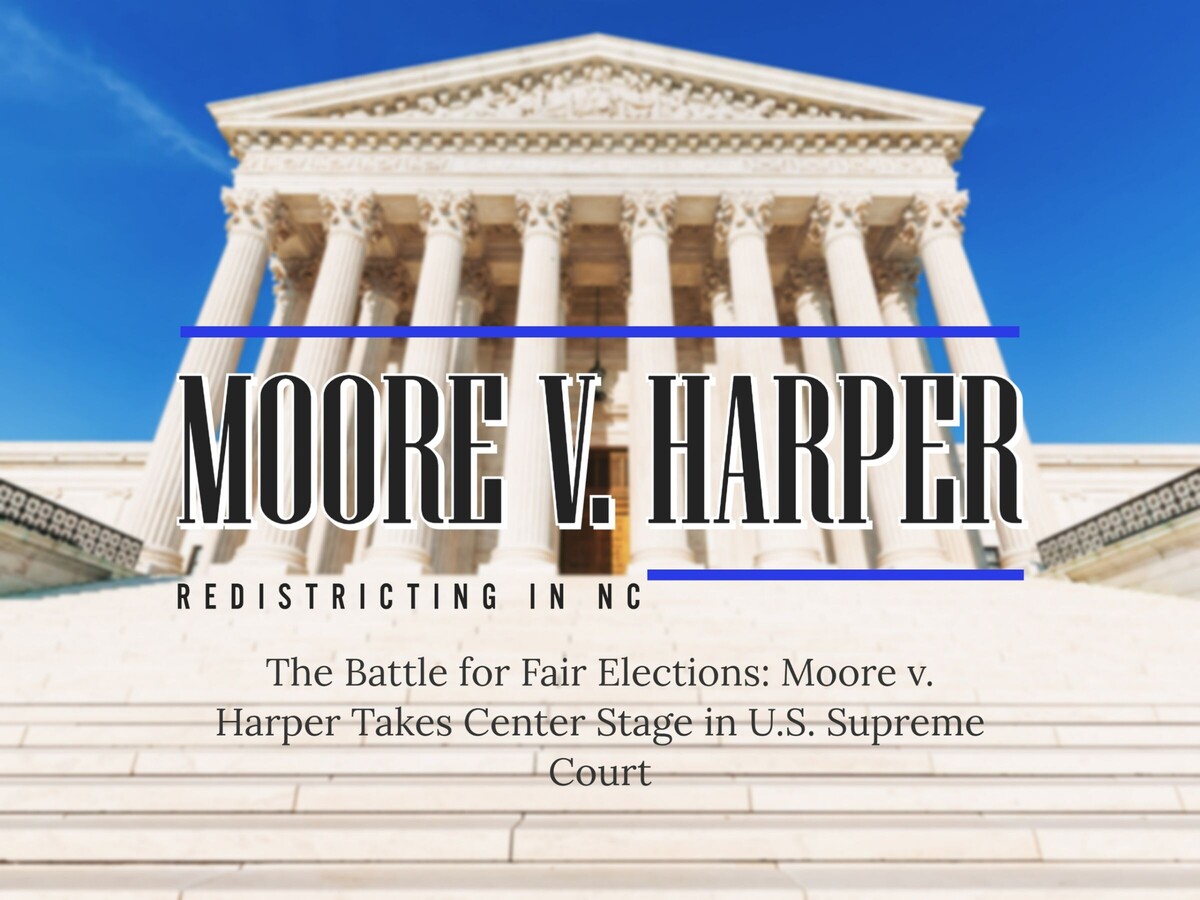Image


The United States Supreme Court is hearing a landmark case, Moore v. Harper, which could have a significant impact on American democracy and future federal elections. The case involves the redistricting of North Carolina's districts by the state's legislature after the 2020 census and allegations of extreme gerrymandering in favor of the Republican Party.
North Carolina has been the subject of ongoing litigation over its congressional and legislative districts for the past decade. In 2019, the Supreme Court held that partisan gerrymandering claims are beyond the reach of federal courts, but that courts can still evaluate redistricting maps for racial gerrymandering under the Voting Rights Act.
After the 2020 census showed North Carolina's demographics to be 60% Caucasian, with African Americans and Hispanics making up the largest minority groups, the Republican-controlled legislature drew up new maps, which faced multiple lawsuits for both racial and partisan gerrymandering.
The Republican General Assembly argued their case based on the independent state legislature theory (ISL), which suggests that Article I of the U.S. Constitution delegates authority to regulate federal elections within a state to that state’s elected lawmakers without any checks and balances from state courts, governors, or other legislative bodies.
The ISL theory gained traction among Republicans and conservatives since the 2000 Bush v. Gore case, making Moore v. Harper a potential landmark case. The Supreme Court granted review on June 30, 2022, and oral arguments were held on December 7, 2022.
Court observers noted that the ISL theory was rejected by the three liberal justices and Chief Justice Roberts, while Justices Alito, Thomas, and Gorsuch appeared to still embrace the ISL concept.
The case has been described as one of the most high-profile in recent years, with former federal judge Michael Luttig calling it the "single most important case on American democracy — and for American democracy — in the nation's history."
The outcome of Moore v. Harper is expected to have a significant impact on future federal elections in the U.S. and efforts to make gerrymandering illegal or remove voting restrictions.